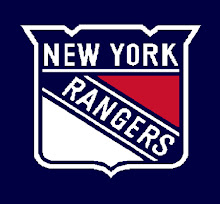Unfortunately, the decision to include squash is not a permanent one for the Olympics Games. It is basically just an audition. Allow me to explain.
Theoretically, according to the Olympic Charter (the IOC's own governance rules), the Summer Games are limited to 10,500 athletes and the number of permanent sports was limited to 28. But in Tokyo there were 33 sports and in Paris this year it is 32. For LA it will be 35 sports. It appears that instead of revising the IOC Charter itself, they just bent their own rules to allow each location to choose optional (non-permanent) sports to include in the Games they host. For instance, the IOC announced there will be 30 permanent sports in LA, not 28. Surprisingly, they left out boxing which was previously part of the Games, but they said it still remains on the 'permanent program', go figure. Over and above the 30 permanent sports for the 2028 Games, the IOC gave the LA organizers the option to include up to 6 new sports which, they said, should 'improve local interest' in the Games.
So, the Los Angeles 2028 organizing committee jumped at the offer and added 5 sports (for a total of 35): baseball/softball, cricket, flag football, lacrosse and squash. Which is great. But, given these additions, it is a mystery to me how they will keep within the 10,500 athlete limit for 2028, unless they cut numerous other sports disciplines from the 2028 Games. So far they have only cut one rowing discipline. Most likely the 10,500 limit will not be enforced and the IOC will justify it somehow. These self-enforced limits clearly are not real.
So, the optional sports that are now a regular occurrence at each Summer Games are at the discretion of the local organizers. These optional sports are a part of the Olympic Games, in that medals are awarded to the athletes, but they are more analogous to demonstration sports, in the sense that they are not permanent. For instance, in 2020 karate was included in the sports program by the Tokyo organizers, but was effectively cut by the Paris organizers (by not being added as an optional), so karate won't appear at the Olympic Games this year. Another sport making its debut in Paris this year is breaking (breakdancing). Breaking will appear as a medal sport in the Paris Games, but it will not appear in LA 2028, even though the organizers could have easily included it. But they chose not to. Breaking is clearly not part of the permanent program. Neither was karate. And neither is squash.
Over and above the lack of inclusion on the permanent sports program, there is also other reason to worry about squash's future at the Olympics. Looking back at the modern Olympic era over the last 125 years or so, there are many 'bat and ball'-type sports that have appeared in the Olympic Games only to be cut from future events. This does not bode well for squash's chances for re-inclusion after 2028. This IOC cut list includes 1) real tennis, 2) lacrosse, 3) cricket, 4) hurling, 5) croquet, 6) pelota, and 7) rackets. Let us look at each in turn.
1) Real tennis, aka Jeu de Paume, was featured in the Olympic Games from 1900 to 1924. Jeu de Paume is an ancient, aristocratic ancestor of tennis. It is played indoors on a court with walls, using wooden rackets and hollow balls. While initially popular, its decline in participation led to its exclusion from the Games. Versions of it are still played in private clubs across the US and abroad.
2) Lacrosse featured in 1904 and 1908. This fast-paced, stick-and-ball game with its Native American roots had a brief stint in the Olympics. However, low international participation and confusion with other stick sports like hurling eventually sidelined it. But, lacrosse is the oldest sport in the US and has been given another chance through inclusion in the LA 2028 sports program. No doubt Team USA will be expecting medals from this event in LA.
3) The gentleman's game, cricket, made a solitary appearance in the 1900 Paris Games. However, its long format and limited international appeal at the time meant it was just a one-off Olympic venture. Fortunately, given its global appeal, it has also been given another chance in 2028. I think we can safely say that the USA will not win any medals for cricket any time soon. Good for the American organizers who unselfishly chose this global sport.
4) Hurling is an Irish stick game with some similarities to lacrosse and Gaelic Football, was held as an exhibition at the 1904 Louisiana Purchase Exposition alongside the 1904 Olympic Games. Hurling has never been officially on an Olympic program, and likely never will given its lack of popularity outside of Ireland. In Ireland though it is pretty huge, to be fair.
5) Croquet was played in the 1900 Games. This was the only Olympics where croquet was part of the official program, though there was the variant called roque at the 1904 Summer Olympics. It was never included in the Games again.
6) At the 1900 Summer Olympics, a Basque pelota tournament was contested. This is the only Olympics to date where pelota was an official sport, being revived at the 1924, 1968 and 1992 Games as a demonstration sport. It never re-entered the Games and no further medals were ever awarded after that first event.
7) At the 1908 Summer Games, two rackets events were contested. Only British players participated in the competitions. New York City-born John Jacob Astor won a bronze medal in the singles and doubles gold. Despite its popularity on both sides of the Atlantic the sport was mostly played by the elite and never had enough mainstream appeal to be re-included in the Olympic Games.
As you can see, even though it mostly happened a long time ago, the IOC does have a record of including and then excluding 'bat and ball' sports. The inclusion of squash in the 2028 Games is not a permanent change to the sports program at all. And even though squash will be in the 2028 Games in LA, there is nothing that guarantees squash will be included in the Brisbane 2032 Summer Olympics, nor in any future Games after that.
Even if the sports for the 2032 Games get finalized after the 2028 Games, and squash puts on an incredible show in Los Angeles, there are clearly many competitors to squash that could be considered in the same broad 'bat and ball' lane. At the 2028 Olympics alone, along with the new optional sports of lacrosse and cricket, there are also the existing (permanent program) sports of golf, tennis, badminton, table tennis. handball, baseball/softball, and field hockey. There will also be external pressure from pickleball and padel, both of which are making grassroots gains right now, often at the expense of squash. To a jaded observer in Lausanne, these are all similar 'bat and ball' sports anyway, so why include any more at all, right.
Irrespective of what transpires with the sports program in future Olympics, squash's long rocky path into the Games, and the competition from all the sports in the same lane, the Olympic debut in Los Angeles promises to be a game-changer for squash. And this will play out over the next four years as the increased exposure will undoubtedly propel the sport to new heights, attracting fresh eyes, sponsors, and investment. This can translate into improved infrastructure, coaching programs, and opportunities for aspiring squash players around the world. And the effects are already being felt. This is all good news and is more important than inclusion in the Olympic Games itself. Especially since, ya know, LA 2028 is just an audition.












































